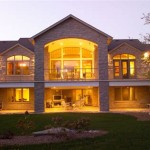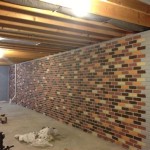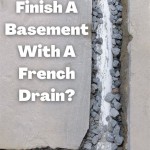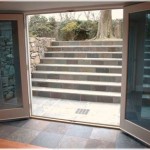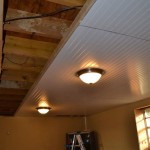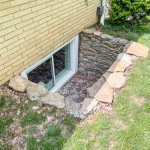How Much Does It Cost To Finish A Basement In Colorado Springs?
Finishing a basement in Colorado Springs can significantly increase a home's living space and value. However, before embarking on such a project, it is crucial to understand the associated costs. The price to finish a basement varies based on numerous factors, including the size of the basement, the complexity of the design, the quality of materials used, and the labor rates in the Colorado Springs area. This article delves into the various aspects of basement finishing costs in Colorado Springs, providing a comprehensive overview of what homeowners can expect to pay.
Generally, the cost to finish a basement in Colorado Springs ranges from $30 to $100 or more per square foot. This broad range reflects the wide array of choices homeowners have available, from basic, budget-friendly finishes to high-end, custom designs. A simple finishing project might include framing, drywall, basic flooring, and standard lighting, while a more involved project could incorporate a bathroom, kitchen, custom entertainment center, and upgraded finishes.
Several key elements contribute to the overall cost. These include framing, electrical work, plumbing (if adding a bathroom or wet bar), insulation, drywall, flooring, painting, lighting, and any necessary permits. Each element has its own price range, which can fluctuate depending on the specific materials and labor chosen. Furthermore, unforeseen issues, such as moisture problems or structural repairs, can add to the final expense.
Key Cost Factors in Basement Finishing
Understanding the specific factors that influence the cost of finishing a basement is essential for accurate budgeting. Several key components contribute significantly to the overall price. These include the basement's size and layout, the complexity of the design, the materials selected, labor costs, and permit fees.
Size and Layout: The square footage of the basement is a primary determinant of cost. Larger basements require more materials and labor, naturally increasing the overall expense. The existing layout also plays a role. Open floor plans are typically less expensive to finish than basements with numerous walls and obstructions, as less framing and drywall are required. Any modifications to the existing layout, such as moving walls or adding new ones, will also increase costs.
Design Complexity: The complexity of the desired design significantly impacts the cost. A simple design with basic finishes will be less expensive than a complex design featuring custom features, specialized lighting, and intricate details. Features like home theaters, wet bars, and elaborate bathrooms add to the project's complexity and cost. The more detailed and customized the design, the higher the price tag.
Material Selection: The choice of materials has a substantial impact on the price. Flooring options range from inexpensive concrete staining to high-end hardwood or tile, with corresponding price differences. Similarly, lighting fixtures can range from basic recessed lighting to elaborate chandeliers, affecting the budget. Appliances, countertops, and bathroom fixtures also contribute significantly to the overall material costs. Choosing higher-quality materials will generally result in a more durable and aesthetically pleasing finished basement but will also increase the initial investment.
Labor Costs: Labor comprises a significant portion of the total basement finishing cost. Labor rates vary depending on the experience and expertise of the contractors and subcontractors. In Colorado Springs, labor costs are generally competitive, but it is essential to obtain multiple quotes from different contractors to ensure a fair price. Hiring licensed and insured professionals is crucial to ensure quality workmanship and compliance with local building codes. It's extremely important to get bids from multiple contractors to compare pricing and scopes of work.
Permit Fees: Obtaining the necessary permits is essential for any basement finishing project. Permit fees vary depending on the municipality and the scope of the work. Failing to obtain permits can result in fines and delays and may require redoing work that does not meet code requirements. Permit fees, while often a smaller percentage of the total project cost, should be factored into the budget.
Specific Cost Breakdown by Category
To provide a more detailed understanding of basement finishing costs, it is helpful to break down the expenses by category. Each category represents a different aspect of the project, and understanding the typical cost range for each can help homeowners make informed decisions.
Framing: Framing is the process of constructing the walls and partitions of the finished basement. The cost of framing depends on the size of the basement and the complexity of the layout. The average cost for framing materials and labor ranges from $1 to $3 per square foot. This includes the cost of lumber, fasteners, and the labor required to build the walls and ceilings.
Electrical Work: Electrical work involves installing wiring, outlets, switches, and lighting fixtures. Modern building codes require specific electrical circuits for different appliances and rooms. The cost of electrical work ranges from $2 to $5 per square foot. This includes the cost of materials, such as wiring, outlets, switches, and lighting fixtures, as well as the labor required to install them. It can also include the cost of upgrading the electrical panel if needed.
Plumbing: Plumbing is required when adding a bathroom, wet bar, or other water-related fixtures to the finished basement. This includes installing water supply lines, drain lines, and fixtures such as toilets, sinks, and showers. The cost of plumbing can vary significantly depending on the complexity of the project and the distance to existing plumbing lines. The average cost ranges from $3 to $7 per square foot, but can be higher if extensive plumbing work is required.
Insulation: Proper insulation is crucial for maintaining a comfortable temperature and reducing energy costs in a finished basement. The cost of insulation depends on the type of insulation used, the thickness of the insulation, and the size of the basement. Common types of insulation include fiberglass batts, spray foam, and rigid foam boards. The average cost of insulation ranges from $1 to $3 per square foot. This includes the cost of materials and the labor required to install them.
Drywall: Drywall is used to create the finished walls and ceilings in the basement. The cost of drywall depends on the size of the basement and the type of drywall used. The average cost ranges from $1.50 to $3 per square foot. This includes the cost of drywall sheets, joint compound, tape, and the labor required to install and finish the drywall. Skilled drywalling is paramount to a smooth finished project.
Flooring: Flooring options for a finished basement include carpet, tile, laminate, vinyl, and hardwood. The cost of flooring varies significantly depending on the type of flooring chosen. Carpet is typically the least expensive option, while hardwood and tile are more costly. The average cost of flooring ranges from $2 to $10 per square foot. This includes the cost of materials and the labor required to install them.
Painting: Painting involves applying primer and paint to the walls and ceilings of the finished basement. The cost of painting depends on the size of the basement, the type of paint used, and the number of coats applied. The average cost ranges from $1 to $3 per square foot. This includes the cost of paint, primer, brushes, rollers, and the labor required to paint the walls and ceilings.
Lighting: Lighting options for a finished basement include recessed lighting, track lighting, pendant lighting, and sconces. The cost of lighting depends on the type of fixtures chosen and the complexity of the electrical work. The average cost ranges from $1 to $4 per square foot, including the cost of the fixtures and the labor required to install them.
Contingency Planning and Potential Hidden Costs
When budgeting for a basement finishing project in Colorado Springs, it is essential to account for potential unforeseen issues and hidden costs. Unexpected problems can arise during the construction process, and having a contingency fund can help prevent budget overruns. Common potential hidden costs include moisture problems, structural repairs, and code compliance issues.
Moisture Problems: Basements are prone to moisture problems due to their location below ground level. Water leaks, dampness, and mold growth can significantly impact the cost of finishing a basement. Before starting the project, it is crucial to inspect the basement for any signs of moisture and address any issues promptly. This may involve repairing cracks in the foundation, installing a sump pump, or improving drainage around the house. Addressing moisture problems can add significantly to the overall cost but is essential for ensuring a healthy and durable finished basement. Water mitigation can easily add thousands of dollars to a project budget and should always be accounted for.
Structural Repairs: In some cases, structural repairs may be necessary before finishing a basement. This may involve repairing cracks in the foundation, reinforcing walls, or addressing other structural issues. The cost of structural repairs can vary significantly depending on the extent of the damage and the complexity of the repairs. It is essential to have a structural engineer inspect the basement before starting the project to identify any potential structural problems and develop a plan for addressing them. Ignoring structural issues can compromise the safety and stability of the finished basement.
Code Compliance Issues: Building codes in Colorado Springs regulate various aspects of basement finishing, including safety, electrical work, plumbing, and ventilation. Ensuring that the finished basement complies with all applicable building codes is essential for obtaining the necessary permits and avoiding fines. Code compliance issues can arise if the existing structure does not meet current code requirements, such as inadequate ceiling height or lack of egress windows. Addressing code compliance issues can add to the overall cost of the project but is essential for ensuring the safety and legality of the finished basement.
A contingency fund of 10-15% of the total project cost is recommended to cover any unforeseen issues that may arise. This fund can help prevent budget overruns and ensure that the project can be completed successfully, even if unexpected problems occur.
Ultimately, the cost to finish a basement in Colorado Springs is a complex calculation influenced by numerous factors. By carefully considering these factors and planning accordingly, homeowners can develop a realistic budget and create a beautiful and functional finished basement that adds value to their home.

How Much Would It Cost To Finish My Colorado Basement Elkstone Basements

Professional Basement Finishers Colorado Springs

How Much Does A Basement Finish Cost Elkstone Basements

Professional Basement Finishers Colorado Springs

Professional Basement Finishers Colorado Springs

Professional Basement Finishers Colorado Springs

How Much Does A Basement Finish Cost Elkstone Basements

Basement Finishers Renovators Colorado Springs Complete Finishing Remodeling Systems Elkstone Basements

Cost To Finish A Basement In 2024 Forbes Home

Basement Finishing J Construction Inc Colorado Springs
